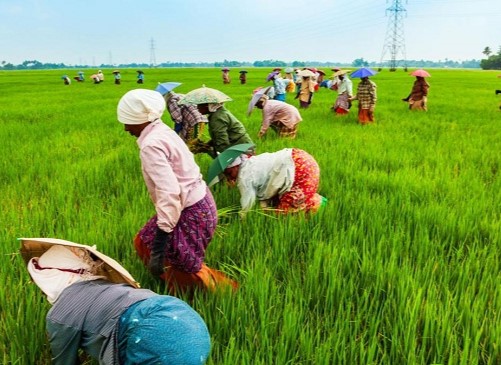
Key stakeholders within Nigeria’s agricultural sector have called for the swift passage of the Agricultural Extension Service Delivery Revitalization Bill to bolster agricultural productivity amid growing concerns over food shortages and escalating prices.
During a recent meeting involving various agricultural leaders, discussions focused on the revised draft of the proposed bill. Participants emphasized the crucial role agriculture plays in driving the nation’s economic growth and securing food for its rapidly increasing population. Hajiya Salamatu Garba, Executive Director of the Women Farmers Advancement Network (WOFAN) ICON2 Project, stressed the importance of agriculture in national development, highlighting the need for comprehensive support to the sector.
“Agriculture forms the backbone of any country’s economic stability. In Nigeria, it is essential that we prioritize agriculture to meet the food demands of a growing population. With the federal government’s approval of the agricultural policy, we now have an opportunity to address long-standing challenges in the sector, particularly by improving the capacity of agricultural extension services,” said Garba.
Garba also pointed out that WOFAN, supported by the MasterCard Foundation, has been working to improve the conditions of farmers and extension workers. She emphasized that the lack of skilled extension workers remains one of the major bottlenecks in Nigeria’s agricultural progress. She expressed optimism that transforming the approved policy into a law would provide the necessary framework to strengthen food security in Nigeria.
One of the critical areas of focus in the proposed policy is the integration of technology into agricultural extension services. Garba highlighted how Information and Communication Technology (ICT) could significantly enhance the effectiveness of extension services. She proposed the development of a mobile application that could address both health and security emergencies on farms by linking with security agencies and healthcare providers.
Echoing her views, Professor Ikani Emmanuel, Executive Director of the National Agricultural Extension and Research Liaison Services (NAERLS), emphasized the transformative potential of modern extension services in shifting from traditional farming methods to more advanced, sustainable practices. He pointed out that poor funding and lack of coordination have hampered the effectiveness of agricultural extension services in the past. He is hopeful that the bill will address these challenges, with the creation of a national committee to oversee its implementation.
“Extension services are pivotal in transforming agriculture. For far too long, the system has been fragmented and disorganized. The new policy aims to fix these problems, ensuring adequate funding and coordination. We envision a streamlined approach to extension services with a dedicated committee overseeing its success,” said Emmanuel.
Professor Sani Miko, Board Chairman of the Technical Board of Advisers for the WOFAN ICON 2 Project, also highlighted the essential role of the private sector in ensuring the sustainability and success of extension services. He noted that the bill’s provisions for incorporating private sector participation are crucial for creating a robust and effective agricultural extension system.
As Nigeria continues to face mounting food security challenges, the call for a robust agricultural extension system is more urgent than ever. Stakeholders believe that the swift enactment of the Agricultural Extension Service Delivery Revitalization Bill will pave the way for a more resilient and self-sufficient agricultural sector.


